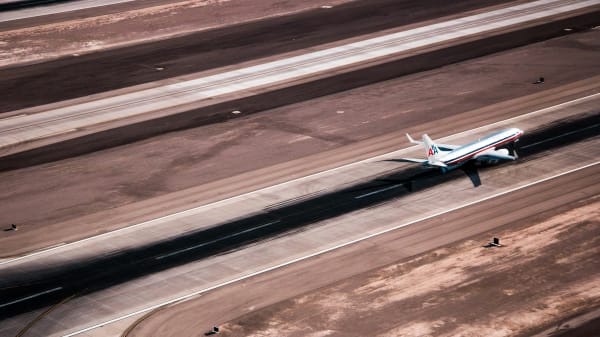A Guide to Specialized Aviation Certifications
While flight can be full of adventure and excitement, it isn't something you can simply jump into without extensive training and various requirements. Among these prerequisites are highly specialized aviation certifications. So, whether you aim to become a private pilot, air traffic controller, or even an aircraft mechanic, you will need appropriate accreditations in the aviation industry. This guide touches upon the diverse range of aviation certifications that are integral for a variety of career paths in the realm of flight.
Types of Aviation Certifications
Depending on what path in aviation you want to follow, the necessary certifications may vary. Here are some of the most common categories of aviation certifications:
- Pilot Certifications: These include Sport Pilot, Recreational Pilot, Private Pilot, Commercial Pilot, and Airline Transport Pilot Certifications.
- Flight Instructor Certifications: Includes Certified Flight Instructor (CFI) and Certified Flight Instructor-Instrument (CFII) among others.
- Flight Engineer Certification: For specialists who operate and monitor complex aircraft systems.
- Aviation Maintenance Certifications: Covers categories like Airframe and Powerplant (A&P) and Inspection Authorization (IA).
- Aviation Safety Certifications: Awards for safety management, risk management, etc.
- Air Traffic Controller Certification: Specialized certification for those directing aircraft within the airspace.
Pilot Certifications
Perhaps most commonly associated with aviation, pilot certifications are essential credentials for anyone who wishes to navigate the skies. They come in a variety of forms, each tailored to specific aspects of flight.
Sport Pilot Certification
With this certification, you're allowed to fly light-sport aircraft under certain conditions. The requirements are less stringent than other piloting certifications, usually requiring around 20 flight hours. You'll be limited to daytime operations, two occupants, and maximal speed of 120 knots (138 miles per hour or 222 kilometers per hour).
Recreational Pilot Certification
Recreational pilot certification is an intermediate step between sport and private pilot certification. It requires a minimum of 30 flight hours, and comes with certain restrictions. For example, you can't fly more than 50 nautical miles (92 kilometers) from your original airfield or at night.
Private Pilot Certification
This is a popular certification, allowing you to fly solo or with passengers, day or night, in visual meteorological conditions. It involves more intensive training than the recreational certification, requiring a minimum of 40 flight hours.
Commercial Pilot Certification
Commercial certification allows you to fly for commercial purposes, that is, to get paid for flying. It involves advanced flight training and a minimum of 250 flight hours, emphasizing precision and professionalism.
Airline Transport Pilot Certification
This is the highest level of pilot certification and is necessary to serve as a captain or first officer on an airline flight. There's a high flight hour minimum (at least 1,500 hours) and it incorporates advanced, specialized training.
Flight Instructor Certifications
As a Certified Flight Instructor (CFI) or Certified Flight Instructor-Instrument (CFII), you will have the ability to teach student pilots, refining their skills and readying them for their own certifications. These certifications require you to already have a commercial pilot's license and proof of extensive, relevant flight experience.
Flight Engineer Certification
As technology advances, the need for Flight Engineers may decrease, yet some aircraft still require this role. Flight Engineers are crucial in monitoring aircraft systems, troubleshooting problems and ensuring efficient fuel consumption. This certification necessitates operational and flight experience.
Aviation Maintenance Certifications
Aviation maintenance certifications ensure that aircraft remain safe, functional, and ready for flight. A key example is the A&P – Airframe & Powerplant – certification, which permits technicians to maintain and repair flight systems. Inspection Authorization (IA) allows maintenance professionals to review and approve aircraft for return to service.
Aviation Safety Certifications
Safety plays a pivotal role in aviation. Accreditations like Certified Aviation Manager (CAM) or Aviation Safety Officer (ASO) validate managerial and supervisory skills in an aviation safety setting. They focus on safety management, risk management, and adherence to safety regulations.
Air Traffic Controller Certification
Air Traffic Controllers perform a high-stress role, managing the safe transit of aircraft within assigned airspace. Earning ATC certification involves a diverse array of training, including classroom instruction, simulator experiences, and on-the-job training.
Undeniably, aviation certifications cover an extensive range. They not only serve as indicators of skill and training but also stand as an assurance of safety within the complex field of aviation. By understanding the differing categories and specialties, you can better choose the certification that best aligns with your aviation aspirations. Whether you hope to fly high as a pilot, maintain the aircraft that soar, or direct the traffic of the skies, specialized certifications are crucial stepping stones towards reaching your flight-focused career dreams.




